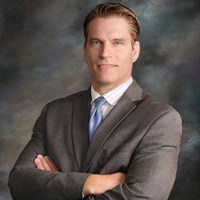Lacota Felony Lawyer, Michigan
Sponsored Law Firm
-
 x
x

Click For More Info:
-
The Lockwood Legal Group, LLC.
26418 Olympic Club Drive South Bend, IN 46628» view mapAccident & Injury, Criminal, and Divorce Justice is blind
I represent clients like you to obtain justice on their behalf. Justice is not a commodity, it's a right.
800-457-7830
Donald H. Smith
✓ VERIFIEDCriminal, Misdemeanor, Felony, Child Custody, Adoption
Dedicated to Excellence in Client Service
Don was born and raised in Kalamazoo, Michigan and graduated from Kalamazoo Christian High School in 1989. He attended Hope College in Holland, Michig... (more)
FREE CONSULTATION
CONTACTFREE CONSULTATION
CONTACT James Lockwood South Bend, IN
James Lockwood South Bend, IN Practice AreasExpertise
Practice AreasExpertise

